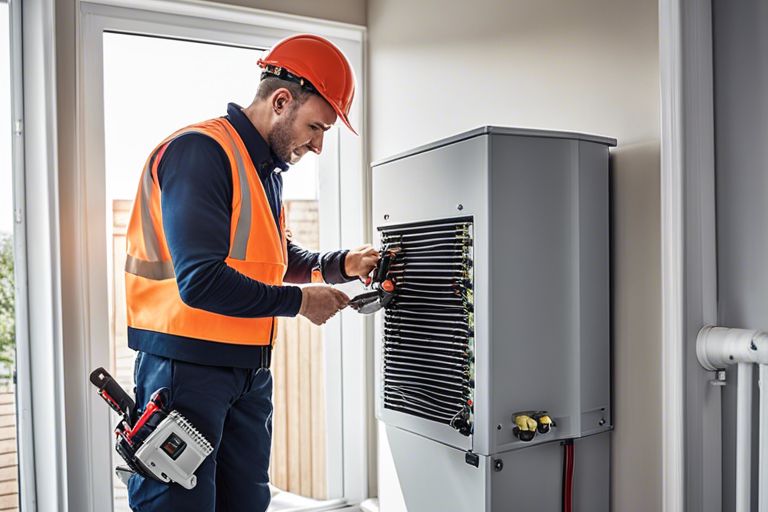Over time, smoke alarms can become
ineffective due to wear and tear, putting tenants at
risk of fires. As a landlord, it is crucial to ensure that your rental properties are equipped with
properly functioning smoke alarms to protect your tenants and comply with
legal regulations. In this guide, we will cover the importance of smoke alarms, how often they should be
tested and replaced, and what type of alarms are
recommended for rental properties. Stay informed and keep your tenants safe by following these important guidelines for smoke alarms in your rental units.
Understanding Smoke Alarms
Types of Smoke Alarms
The
types of smoke alarms you choose for your property can make a significant difference in fire detection. There are two main types: ionization and photoelectric smoke alarms. Ionization alarms are more responsive to flaming fires, while photoelectric alarms are better at detecting smoldering fires. It is recommended to have a combination of both types for comprehensive protection.
Through a good variety, you can ensure early detection of different types of fires.
|
|
| Ionization Smoke Alarms |
Photoelectric Smoke Alarms |
| Detect flaming fires quickly |
Effective in detecting smoldering fires |
| More affordable |
Less likely to trigger false alarms |
| Common in most homes |
Recommended by fire safety experts |
| May have more false alarms |
Slow to respond to flaming fires |
Factors to Consider When Choosing Smoke Alarms
Little things matter when it comes to selecting smoke alarms for your rental property. Consider important factors such as
power source,
interconnectivity,
durability,
installation, and
compliance with local regulations. The
right choice ensures maximum safety for your tenants and complies with all necessary standards.
The safety and well-being of your tenants should be your top priority.
- Power source: Choose between battery-operated or hardwired alarms
- Interconnectivity: Consider alarms that can communicate with each other
- Durability: Opt for long-lasting alarms that require minimal maintenance
- Installation: Easy-to-install alarms save time and effort
- Compliance with local regulations: Ensure alarms meet all legal requirements
Smoke alarms are crucial for early fire detection and can save lives. Make sure to choose the
right combination of ionization and photoelectric alarms, consider important factors such as power source and durability, and always prioritize the safety of your tenants.
The investment in high-quality smoke alarms is an investment in the well-being of those who reside in your property.
Step-by-Step Maintenance Guide
Many landlords often overlook the importance of regularly maintaining smoke alarms in their rental properties. To ensure the safety of your tenants, it is crucial to stay on top of smoke alarm maintenance. Below is a step-by-step guide to help you keep your smoke alarms in top condition.
| Step |
Description |
| 1 |
Test smoke alarms monthly by pressing the test button. |
| 2 |
Change smoke alarm batteries at least once a year. |
| 3 |
Vacuum around and inside the smoke alarms to prevent dust build-up. |
| 4 |
Replace smoke alarms every 10 years to ensure optimal performance. |
Tips for Regular Smoke Alarm Maintenance
Guide your tenants on regular smoke alarm maintenance by emphasizing the importance of testing
monthly and changing batteries
annually. Make it a habit to vacuum around the alarms to prevent
dust accumulation. Recognizing the early signs of a faulty smoke alarm can help prevent potential disasters.
Ensuring Compliance with Regulations
Replacement of smoke alarms is imperative to comply with
local regulations and
building codes. Compliance ensures that your property meets the necessary safety standards. Regular inspections and maintenance will help you avoid penalties and, most importantly, protect the lives of your tenants.
Cost-Benefit Analysis
Pros and Cons of Different Smoke Alarm Models
| Model |
Pros and Cons |
| Photoelectric Smoke Alarms |
Pros: Quick response to smoldering fires, less likely to trigger false alarms.
Cons: Can be more expensive than ionization alarms. |
| Ionization Smoke Alarms |
Pros: Fast response to flaming fires, typically more affordable.
Cons: More prone to false alarms from cooking fumes. |
If you are considering updating the smoke alarms in your rental properties, it is crucial to weigh the pros and cons of different smoke alarm models. Understanding the differences can help you make an informed decision that ensures the safety of your tenants while also being cost-effective.
Financial Considerations for Landlords
To ensure that your rental properties are equipped with the most reliable and up-to-date smoke alarms, there are financial considerations that landlords need to take into account. The cost of purchasing and installing smoke alarms can vary depending on the model chosen and the number of units in your properties.
Considerations: It is crucial to prioritize the safety of your tenants by investing in high-quality smoke alarms that meet current safety standards. While there may be an initial cost involved, the
long-term benefits of having reliable smoke alarms far outweigh the expenses. Additionally,
regular maintenance and inspections of smoke alarms can help prevent costly damages in the event of a fire. By ensuring that your smoke alarms are up to date, you are not only fulfilling your legal obligations as a landlord but also
demonstrating your commitment to the well-being of your tenants.
Final Words
Ultimately, ensuring that your smoke alarms are up to date is not just a legal requirement but also a crucial step in keeping your tenants safe. By following the guidelines in this comprehensive guide for landlords, you can protect your property and the lives of those who reside in it. Regularly checking, maintaining, and replacing smoke alarms will provide peace of mind and ensure that you are meeting your obligations as a responsible landlord. Don’t wait until it’s too late – take action now to make sure your smoke alarms are in proper working condition.


